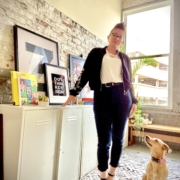My White Peer Learning Cohort Experience
As a lifelong learner committed to social justice, I have always believed all lives are intertwined, and that none of us can be free unless everyone is. I also know that believing in a concept is easier than living out this value in my daily life and business – and that I make many mistakes along the way.
That was at the top of my mind when I joined Five Frogs’ White Peer Learning Cohort to expand my knowledge of what part I play in dismantling white supremacy. As a marketing and design professional focused on the nonprofit sector here in Connecticut, and as a wife and mother dealing with family issues of race, ethnicity and immigration, I understand the urgency of reimagining our system and institutions. And I acknowledge that I don’t know what I don’t know.
The concept of an affinity group for white people can seem odd, even jarring. Yet it makes sense when we understand the reasoning of creating a space where participants can ask questions about race and justice without harming people of color.
So often we, as white people, approach discussions of systemic racism from an intellectual point of view. For those living the experience of being discriminated against on the basis of the color of their skin, such conversations can be extraordinarily frustrating and painful. In a white peer learning cohort, participants can explore in a setting that is designed to minimize such harm.
My experience with Five Frogs’ White Peer Learning Cohort was both inspiring and enlightening. The facilitator, Jason Fredlund, was a fantastic speaker and teacher and it was eye-opening to learn from him how we, as white people, are affected daily by the history and current reality of a racist world. I appreciated him opening the call each time by acknowledging that the land we live on is not ours, and was stolen. Today, I write this from traditional Paugussett territory, now known as Stratford, Connecticut.
I learned a lot about the history of race, types of racism (ideological, institutional, interpersonal and internal), effects on culture, law and brainstorming ways to make change. But the most important thing I learned was about who I am, and how I relate to others when it comes to socialization and power.
Our power depends on so many things: race, gender, education, language, physical ability and more. More often than not, I am not the top of the chain. In my business, I ALWAYS am the person that holds the most power, as I am the owner and principal. This means that in all my business interactions, it is my responsibility to ensure that the people who work with me feel safe, heard and are given opportunities to share feedback. This is definitely something that takes a lifetime to learn.
One discussion that particularly stood out to me was about different types of learners, and our job as leaders to meet people where they are. With different cultural experiences, educational experiences and individual strengths and attributes, we cannot expect employees to be the same as us. Some might learn better in silence or by video or in a group in-person training. It is not my job to shove someone into a position, but rather adapt the position around their strengths, comforts and lifestyle.
Another powerful part of the experience was the discussions on “Roots Deeper than Whiteness.” The origins of “whiteness” are rooted in a power play by Europeans to unite a group of people by creating a new identity that claims “white” is superior to others. This altered the course of history. While I know my ancestors are from Italy, England and Ireland, I don’t have any cultural traditions stemming from those origins. Racism has stolen so much history from all of us, and the more we understand that we are all swimming in the ocean of a problem as opposed to standing on the shore, the more authentically we can move in a way that builds culture, supports change and creates a brighter future for our children.
With my cohort experience complete, I am still learning how to be anti-racist. It is one thing to take concrete action such as calling out racist behavior, use my vote in ways that support communities of color, and even to change my behavior in business. It is another thing altogether to deconstruct my mind and remove the fragments of white supremacy that are embedded in my unconscious assumptions.
Since completing the program, I have changed many things about how I hire, work with my team and support their growth. I still have mountains to climb. White supremacy continues to have a hold on my lifestyle, language and the society I operate in. Yet it does not have roots in my heart, and I am determined to do my part in being anti-racist – for a better world for us all.
Corti Esteves Cooper
Principal & Founder,
Dot Think Design




